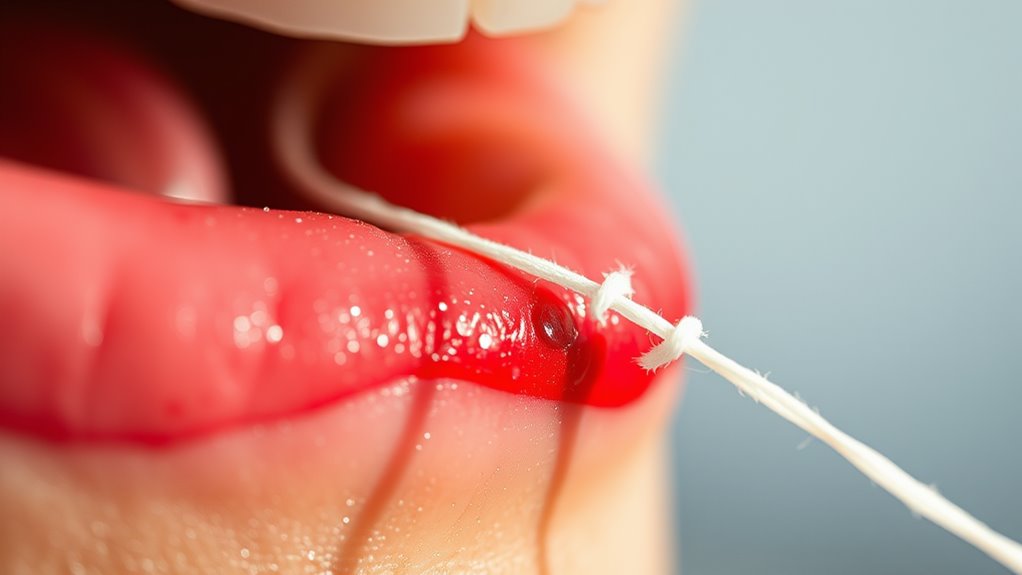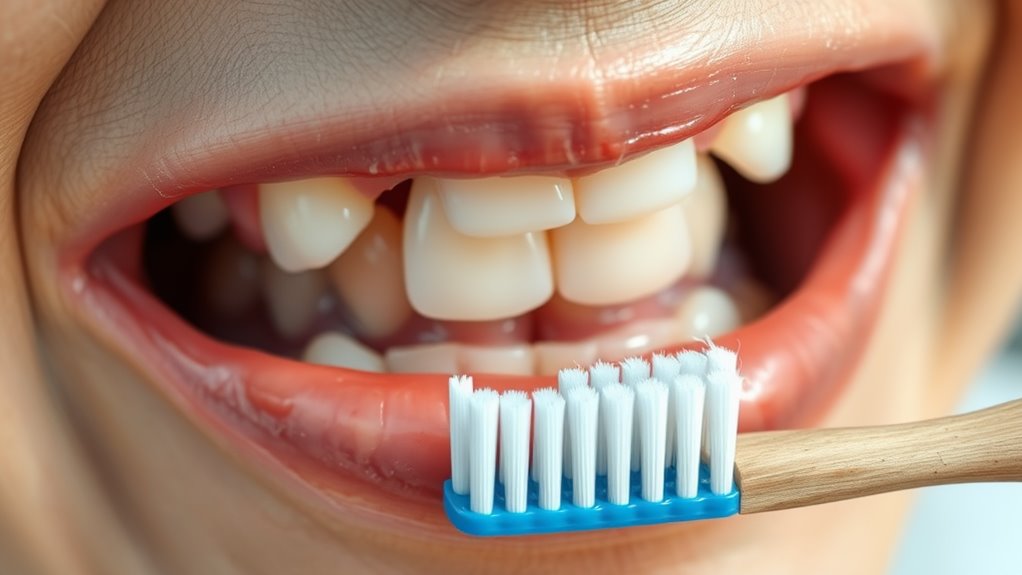How to Instantly Strengthen Your Gums With This Simple Trick!
Oil pulling is a simple yet effective trick for instantly strengthening your gums. Just swish one tablespoon of high-quality oil, like coconut or sesame, in your mouth for 15-20 minutes each morning. This ancient technique helps remove harmful bacteria and plaque, promoting a healthier oral environment. You’ll notice fresher breath and firmer gums over time. Want to maximize your experience and get even more benefits? There are some great tips you won’t want to miss!
What Is Oil Pulling and How Does It Work?
Although you mightn’t have heard of oil pulling before, it’s a simple practice that can enhance your oral health. This ancient Ayurvedic technique involves swishing oil in your mouth, typically coconut, sesame, or sunflower oil, for about 15-20 minutes.
The idea is that the oil collects harmful bacteria, toxins, and plaque, helping to cleanse your mouth. When you swish, the oil penetrates the spaces between your teeth and gums, promoting a healthier oral environment.
People often report fresher breath and reduced gum inflammation after regular practice. Oil pulling can also contribute to whiter teeth and improved overall gum health, making it a worthwhile addition to your oral hygiene routine.
You’ll love the benefits it brings to your smile!
Step-by-Step Guide to Oil Pulling
If you’re ready to experience the benefits of oil pulling, following a simple step-by-step guide can make the process easy and effective.
Here’s how to get started:
-
Choose Your Oil: Pick a high-quality oil like coconut, sesame, or sunflower. Each has its own unique properties, so find one that suits you best.
-
Swish the Oil: Take a tablespoon of your chosen oil and swish it around in your mouth for 15-20 minutes. Be sure not to swallow it!
-
Spit and Rinse: After swishing, spit the oil into a trash can (not the sink to avoid plumbing issues). Rinse your mouth with warm water, then brush your teeth as usual.
That’s it! You’ve successfully completed your oil pulling session.
Benefits of Oil Pulling for Gum Health
Oil pulling can considerably enhance your gum health by reducing harmful bacteria and promoting a healthier oral environment.
When you swish oil around your mouth, it helps draw out toxins and plaque, leading to fresher breath and less inflammation. You might notice your gums feel firmer and less sensitive over time.
This practice also helps maintain moisture in your mouth, which can prevent dryness and irritation. Plus, it encourages better overall oral hygiene, making it easier to keep your teeth and gums clean.
As you incorporate oil pulling into your routine, you’re not just addressing gum issues; you’re investing in your long-term dental health. Your gums will thank you for this simple yet effective practice!
Scientific Evidence Supporting Oil Pulling
Research supports the benefits of oil pulling for improving gum health, making it a compelling addition to your oral care routine. Several studies have shown its effectiveness in reducing plaque and gingivitis, which can lead to healthier gums.
Here are three key findings:
-
Plaque Reduction: A study found that oil pulling noticeably lowered plaque levels, helping you maintain a cleaner mouth.
-
Gingivitis Improvement: Research demonstrated that regular oil pulling decreased signs of gingivitis, promoting better gum health.
-
Bacterial Control: Evidence suggests that oil pulling can reduce harmful bacteria in your mouth, preventing gum disease.
Incorporating oil pulling into your daily regimen can provide these benefits, supporting your journey toward stronger gums and overall oral health.
Tips for Maximizing Your Oil Pulling Experience
To get the most out of your oil pulling experience, it’s essential to follow a few key practices that enhance its effectiveness.
First, choose high-quality oil, like coconut or sesame, which offer antimicrobial properties.
Make sure to swish the oil in your mouth for at least 15-20 minutes; this duration allows it to draw out toxins effectively. Start with a shorter time if you’re new to it and gradually increase.
Remember to do this on an empty stomach, ideally first thing in the morning.
Afterward, spit the oil into a trash can to avoid clogging your sink. Rinse your mouth with warm water and brush your teeth to finish.
Consistency is key, so aim to incorporate this into your daily routine for best results.
Frequently Asked Questions
Can Children Practice Oil Pulling Safely?
Yes, children can practice oil pulling safely, but it’s crucial to supervise them. Make sure they understand not to swallow the oil and to rinse thoroughly afterward. Always consult a dentist for personalized advice.
How Long Does It Take to See Results?
You’ll typically see results within a few weeks of consistent practice. However, individual experiences vary, so stay committed to your routine, and you might notice improvements in gum health sooner than expected.
Is Oil Pulling Suitable for Everyone?
Oil pulling isn’t suitable for everyone. If you have certain dental issues or allergies, it’s best to consult your dentist first. Always listen to your body and choose what feels right for your oral health.
Can Oil Pulling Replace Regular Dental Care?
Oil pulling can’t replace regular dental care. While it may offer benefits, it should complement your routine. You still need brushing, flossing, and professional check-ups to maintain ideal oral health and prevent serious issues.
What Type of Oil Is Best for Oil Pulling?
For oil pulling, coconut oil’s often considered the best due to its pleasant taste and antimicrobial properties. Sesame and sunflower oils work too, but you’ll find coconut oil most effective and enjoyable for your routine.




